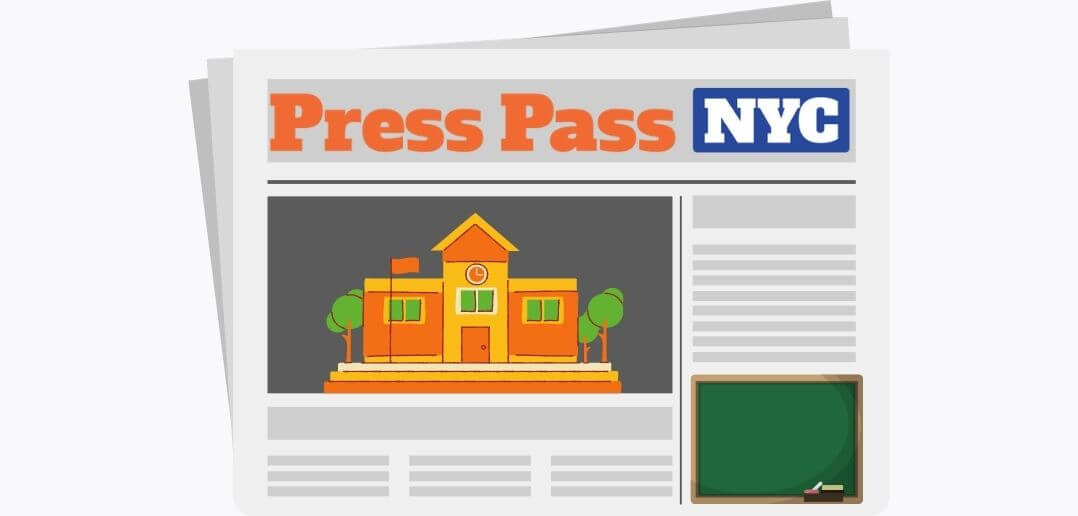More students will be introduced to journalism during high school, thanks to Lara Bergen, former children’s book editor and founder and interim director of Press Pass NYC.
The idea came to Bergen five years ago when she was teaching English at Louis D. Brandeis High School, which at the time did not have a school paper. “I didn’t know how to channel the students’ different skill sets and interests, and so we tried a school newspaper,” Bergen explained.
“It was profoundly rewarding for me as a teacher—by far the most interesting and productive class that I taught—and I could see it was revelatory for students who didn’t know what journalism and journalistic writing was about.”
Last year, after learning that many other public schools do not have a paper or journalism program, Bergen believed it was time to turn an idea into a reality. “We have a million students in New York City and easily 800,000 of them will not experience journalism in pre-K through the 12th grade—in a city with small newspapers, the biggest newspapers in the world, and colleges and graduate schools with incredibly rich resources,” she said. “I realized what a perfect time in New York and in history this was for trying to revive journalism in schools. It’s the best way to learn news literacy.”
“Access to scholastic journalism and opportunities to participate in it are fundamentally educational equity issues,” Bergen added. “This is also why our program is offered completely free to schools—asking only that they pay whatever online newspaper web hosting fees are incurred—if they can.”
Seven high schools in Brooklyn, Queens, and Manhattan have already begun working with Press Pass NYC over the last five months.
Melanie Werner, assistant principal at Brooklyn High School for Law and Technology reached out to Bergen, sharing her desire to launch a digital monthly newspaper at the Bushwick school. So, Bergen helped organize an all-female panel of six journalists to physically visit the high school on Feb. 15 and speak with approximately 50 students about their careers for 90 minutes.
“We’ve held events and had speakers visit us in the past, but I was so impressed both by the kinds and levels of questions that our students were asking and how forthcoming and honest the journalists were,” Werner said. “The students felt very inspired and showed interest in getting involved in our school newspaper and getting this off the ground. It was an awesome event.”
Though Press Pass NYC is just shaping up, Bergen expressed optimism and hopes to launch a student-editor boot camp this summer, among other goals.
“This is our pilot year in figuring out what works best, but my desire is that this will not be an extra program for schools. This is not working on one thing and leaving, but actually coming in, supporting schools as much as possible, and helping schools do this on their own through consultation,” Bergen said. She also wants to make high schools aware of other existing organizations—including PEN America, the Society of Professional Journalists, and the US Journalism Education Association—as well as introduce them to journalism programs at local higher education institutions.
“Lara brings tremendous energy to high school journalism programming and it’s great working with her and seeing her organization blossom in ways that also enhance what our journalism program at Baruch College is offering to public high school students and teacher-advisors,” said Professor Geanne Belton, director of the High School Journalism Program at Baruch College of the City University of New York. “I hope Baruch College’s high school journalism program, in collaboration with Press Pass NYC, will help make the experience of having a quality high school newspaper available to more students and that Press Pass NYC will expand journalism education and school newspaper interest and engagement within as many NYC public high schools as possible.”










